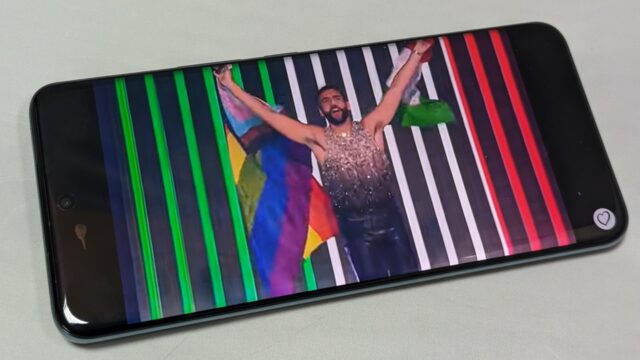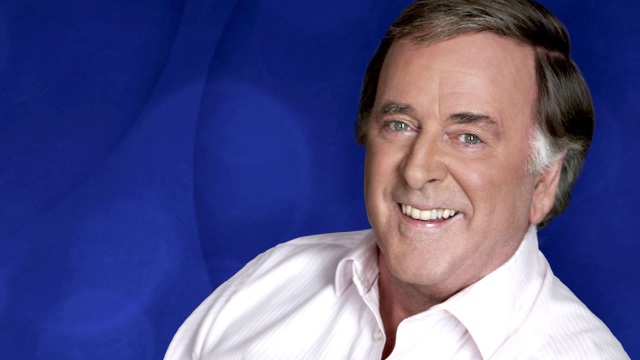As Eurovision Song Contest enthusiasts, and particularly from the position of Song Contest fans in the United Kingdom, we have long suffered the accusations that our Contest is ‘all political’. The thing is, they’re not wrong, Eurovision is very much a political beast, just not how the public think it is. Come and walk along with me where we shall visit some of the political ideology of the Eurovision Song Contest, debunk so-called political voting, how one Space Man may have changed UK attitudes towards the Song Contest for the good, and explore voting behaviours since a global pandemic.
Eurovision is a politically contested space
As a Eurovision fan who has been watching the Contest for as long as I can remember, I began to realise quite early on that the Song Contest is a politically contested space. The Contest itself was born in part from a political ideology to unite the countries of Europe after the devastation caused by two previous World Wars; put simply the idea of nations competing in an international competition is in itself political.
The Song Contest is also a space for the expression and performance of identity and through which identities become politicised. One of my particular highlights during Liverpool 2023 was Italy’s Marco Mengoni proudly waving the Progress Pride flag during his Eurovision flag parade in support of LGBTQ+ rights. This demonstrates the importance of the flag parade – and also the voting sequences – in the Eurovision Grand Final as they provide additional opportunities to provide representation to diverse groups of people who are often underrepresented.
The Reputation Of The Contest
The most prevalent issue we’ve had to suffer and put up with as a community, particularly here in the United Kingdom, is that myth of ‘political voting’. This has aggrieved many Western Europeans, media personalities, and embittered commentators. The idea of political voting is understood to be the ways in which European nations create, according to Anthony Dekker, ‘friendship networks’ between nations based on who live next door to each other. Their voting practices are seen to be based on reciprocity rather than meritocracy.
UK commentator Terry Wogan was highly vocal in his arguments on this aspect of voting throughout most of his tenure, but even more so after the United Kingdom’ first ‘nul points’ in 2003.
In 2008, he was not shy in offering his opinion on the Russian winner and bloc voting which were part of the cause for him to step down as commentator that year. Wogan’s view very much became the prevalent view of Eurovision in mainstream media – it was a very poor view and also xenophobic. For instance, in 1997 he joyfully proclaimed That’s the whole point of it [Eurovision], of course, to sneer at the foreigners.” His comments often produced a relational identity (as well as a relational geography) through a process of ‘othering’, by positioning the UK as culturally ‘other’ to its European neighbours.
Relational models of identity were developed in psychoanalysis through the work of Jacques Lacan which help us to understand that identities exist in relation, rather than isolation. We construct our sense of self by positioning others as similar and different from ourselves. Identities can be constructed through a series of binary oppositions (e.g., Self/Other, mind/body, UK/EU). However, this can be problematic as the Other can be seen as passive and denied agency, which has often been the case when commentators label so-called ‘political voting’.
For example, amongst embittered UK commentators, it is never the UK that participates in such exchanges, but rather other European nations (e.g., the Balkans and Scandinavia). The Eurovision statisticians amongst you will also know that historically the UK often exchanged points with Ireland, but commentators liked to let this slide. This is complicated even more as UK proponents of ‘political voting’ place their country as the passive victim and seek to position themselves (culturally and politically) above their European neighbours across the English Channel.
However, Eurovision academics, such as Gad Yair, have provided another reason for this and suggested that neighbourly voting is more to do with countries voting based on shared cultural values. Yair, in a review of academic literature that has researched the Eurovision Song Contest, explains there has been work on ‘Euro-Divisions’ that have explored “political bloc voting and cultural alliances” and have exposed “consistent and persistent rifts and coalitions in the celebration of European unity”.
That being said, Eurovision statistician Liam Brierley, Research Fellow at the University of Liverpool, has done an incredible job in analysing the results of every Eurovision since 1956. Brierley found that voters would vote for pop songs, ballads, and dance numbers as well as performances that include traditional or folkloric elements of a nation’s identity. There are many other Eurovision statisticians counting, number crunching, and finding patterns in Eurovision data. Andrew Gustar at the Open University, for instance, has examined individual juror scores from Turin 2022 by applying Pluckett-Luce weights on the scores since Eurovision 2016.
If you want even more statistics and enjoy the thought of ‘playing with numbers’, then you can watch Andrew’s talk and also learn about sentiment analyses of Eurovision lyrics by watching the Royal Statistical Society’s Merseyside Group’s seminar from April 2023.
Voting Since COVID-19
One of my own theories on the subject of voting is that in a COVID-19 world since 2021, Eurovision songs that have done well (for example, Go_A’s ‘Shum’, Måneskin’s ‘Zitti E Buoni’, and Käärijä’s ‘Cha Cha Cha’) have often helped audiences recreate a live music event and club atmosphere that had been missing due to COVID-19 lockdowns.
The Song Contest may also be a proxy coping mechanism to escape the anxiety and grief that the COVID-19 virus caused and that was felt across the world. Similarly, we saw this in Italian cities in early 2020 where residents were singing Diodato’s winning San Remo song and would-be Eurovision entry ‘Fai Rumore’ in unison on their balconies in Italian cities. For me, this is the definitive Eurovision song that encapsulated the sombreness around the pandemic. I will always shed a tear at hearing the audience at Eurovision 2022 singing along to ‘Fai Rumore’ as Diodato plays those piano keys in the first semi-final.
The Politics They Are A Changing
When the United Kingdom’s Sam Ryder won the jury vote and came second overall in Eurovision in 2022, and then subsequently with UK hosting the contest in Liverpool on behalf of Ukraine in 2023, accusations of political voting have somewhat diminished. (Saying that, a work colleague still believed the UK doesn’t do well in Eurovision because of political voting while Sam Ryder was earning his silver medal). Even with Mae Muller’s 25th placing, discourse around political voting has been quiet.
However, Eurovision has been used as a political tool by the UK government in the war in Ukraine. You may remember in 2022 when there were the initial discussions about the UK hosting on behalf of Ukraine and the UK’s former Prime Minister, Boris Johnson was adamant for Ukraine to host the Contest – even though the EBU had said it posed safety concerns and logistical difficulties. Further down the line, the UK’s third Prime Minister in less than two years (which I think is a record in Eurovision host country terms), Rishi Sunak, was not happy that the EBU had denied the Ukrainian president Volodymyr Zelenskyy an opportunity to make an appearance at Eurovision in Liverpool. These responses that go against EBU decisions uphold the Tory government’s stance on Euroscepticism.
These Are The Politics Of Eurovision
Since its creation the expression of identities and the way commentators frame voting patterns through processes of othering, has been part of the politics of the Eurovision Song Contest.
Relational models of identity help us to understand how we construct our sense of self by positioning others as similar or different from ourselves. It is this model that can be applied to discussions around ‘political voting’ as it positions ‘us’ (the country complaining that it is being denied votes) against ‘them’ (those countries that supposedly colluded together to vote against said country).
On a more positive note, it is hopeful that attitudes are beginning to shift in the UK towards Eurovision as the public viewing it embrace it more positively. In the week after Eurovision, four songs from the Contest – Loreen, Käärijä, Mae Muller and Alessandra – all charted in the UK Top 10. After winning the contest, Loreen was interviewed for the UK music magazine NME where she told them that contest is an important platform for creativity and inclusivity. As well as a UK tour, she also appeared on Jessie Ware’s ‘Table Manners’ podcast where Jessie and her mum Lennie tell her about the exciting taste of Percy Pigs amid their bickering! Slovenia’s Joker Out have also been back to Liverpool to perform a gig and Finland’s Käärijä has had to host his UK tour dates in bigger venues due to unprecedented demand.
These successes signal more positive attitudes and if anyone does continue to criticise, sit them down with some of these facts and quietly rave about Sam Ryder’s success…
Further reading
- Dekker, A. (2007) ‘The Eurovision Song Contest as a “friendship” network.’ Connections, 27(3) pp. 53–58.
- Gustar, A. (2023) ‘Eurovision voting: a game of two halves.’ Significance, 20(2) pp. 6–10.
- Yair, G. (2019) ‘Douze point: Eurovisions and Euro-Divisions in the Eurovision Song Contest–Review of two decades of research.’ European Journal of Cultural Studies, 22(5–6) pp. 1013–1029.











